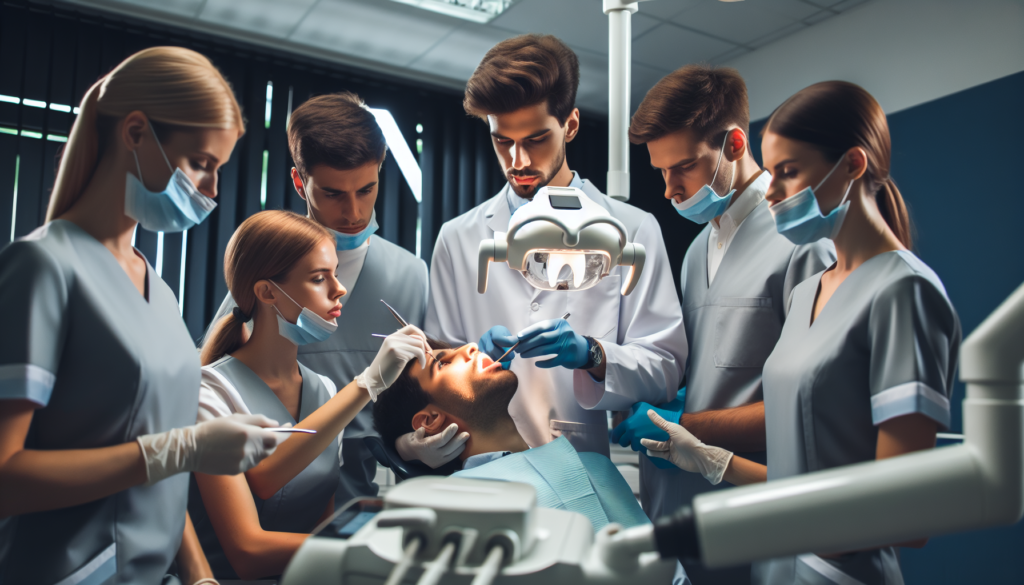Why Dentists Hesitate Prescribing Osteoporosis Medications for Patients
Understanding the Dilemma: Dentists and Osteoporosis Medications
Osteoporosis is a widespread condition, particularly affecting older adults and postmenopausal women. Its consequences—frail bones and increased risk of fractures—make timely intervention essential. Medications known as antiresorptives, such as bisphosphonates and denosumab, have been a mainstay in managing osteoporosis. Yet, a notable concern has emerged in the dental profession: many dentists show hesitation, and sometimes outright reluctance, when it comes to prescribing or even supporting these medications for patients, especially those undergoing dental procedures.
The Connection Between Osteoporosis Medications and Dental Health
Anti-resorptive medications significantly strengthen bones by inhibiting their breakdown. However, their impact on bone metabolism has led dentists to be wary of a rare but serious side effect: Medication-Related Osteonecrosis of the Jaw (MRONJ).
- MRONJ is a condition where the jawbone is exposed and fails to heal after minor trauma, often following tooth extraction or oral surgery.
- Patients on bisphosphonates or denosumab are considered at slightly higher risk, though MRONJ remains uncommon.
The fear of triggering MRONJ can lead dental professionals to exercise extreme caution, particularly for patients who need both dental surgery and osteoporosis medication.
How Common is MRONJ?
While the headlines and professional fears are widespread, the actual occurrence of MRONJ in patients treated with antiresorptive medications for osteoporosis is notably low.
- Studies estimate the risk of MRONJ in these patients is less than 1 in 10,000.
- The risk is much higher in cancer patients receiving high doses of these medications intravenously for bone metastases.
This distinction is crucial, yet the fear of MRONJ often outweighs the statistics during patient care decisions.
Factors Driving Dentists’ Hesitation
Dentists are uniquely positioned at the intersection of oral and systemic health. Their concerns about osteoporosis medications are influenced by several intertwined factors:
- Limited Knowledge or Misinformation: Not all dentists are fully informed about current MRONJ risk data, leading to misunderstandings and overestimations of risk.
- Legal Concerns: The threat of litigation in rare cases complicates clinical decision-making, motivating an overly cautious approach.
- Patient Anxiety: Patients often express their own fears about MRONJ, putting further pressure on dental providers to recommend against osteoporosis medication use.
- Lack of Clear Guidelines: Despite clinical guidelines being available, ambiguity about the best protocols for dental management in patients on antiresorptives remains a challenge.
The Real Cost of Avoidance: Under-treatment of Osteoporosis
While the concerns of dental professionals are understandable, the consequences of avoiding or delaying osteoporosis treatment can be grave. Osteoporosis leads to:
- Fragility fractures—hip, spine, and wrist being most common
- Impaired mobility and loss of independence
- Increased morbidity and mortality, especially after hip fractures in the elderly
These outcomes highlight the need to balance cautious dental care with the proven benefits of osteoporosis medications.
Bridging the Communication Gap: The Role of Collaboration
The best outcomes for patients with osteoporosis and oral health needs come from collaborative care between dentists, primary care physicians, and specialists such as endocrinologists and rheumatologists. Key strategies for bridging the gap include:
- Open Communication: Regular updates and shared decision-making between all providers.
- Patient Education: Informing patients about both the benefits and rare risks of medications, so they can make informed choices.
- Continuing Education: Dentists can benefit from up-to-date training on osteoporosis medication protocols and MRONJ management trends.
Current Recommendations for Dental Care and Osteoporosis Medications
Based on updated guidelines, patients with osteoporosis on antiresorptive therapy should:
- Undergo a dental evaluation before starting medication, if possible
- Maintain excellent oral hygiene and routine dental visits
- Alert their dentist to all osteoporosis medications being taken
- Not discontinue osteoporosis medication without consulting their primary healthcare provider
The Path Forward: Overcoming the Stigma and Rebuilding Trust
Dentists face a complex challenge in managing patients at risk for both osteoporosis complications and oral disease. They must navigate the gray area where rare but alarming risks must be weighed against the proven need for osteoporosis treatment. A modern approach should include:
- Understanding the true, low risk of MRONJ in osteoporosis patients
- Communicating openly with patients about concerns and options
- Advocating for a team-based approach to optimize both bone and dental health
Conclusion: Balancing Caution with Care
The hesitation among dentists in prescribing or supporting osteoporosis medications is driven by a mix of valid clinical concern and persistent myths. While MRONJ remains a challenging complication, the rarity in typical osteoporosis patients should reassure both clinicians and patients. Embracing evidence-based practice, engaging in open dialogue, and prioritizing interdisciplinary care will ensure that patients receive both the bone and oral health care they need—without unnecessary fear.
The bottom line: Osteoporosis treatment saves lives and prevents disability. Dentists and medical doctors must work together to protect patients—keeping both their bones and smiles healthy.
Post Disclaimer
DentalUp is for educational purposes only and cannot accept personal dental information such as x-rays, photos, or treatment details. See full disclaimer here.





